#monastic caves
Text
Vardzia, a Medieval Cave City in Georgia (South Caucasus), built in 1150-1200 CE: Vardzia was designed to be used as a fortress/monastery; it was accessible only through hidden passageways, and it contained more than 6,000 caves, 15 chapels, 25 wine cellars, an apothecary, a forge, a bakery, farming terraces, and an irrigation system
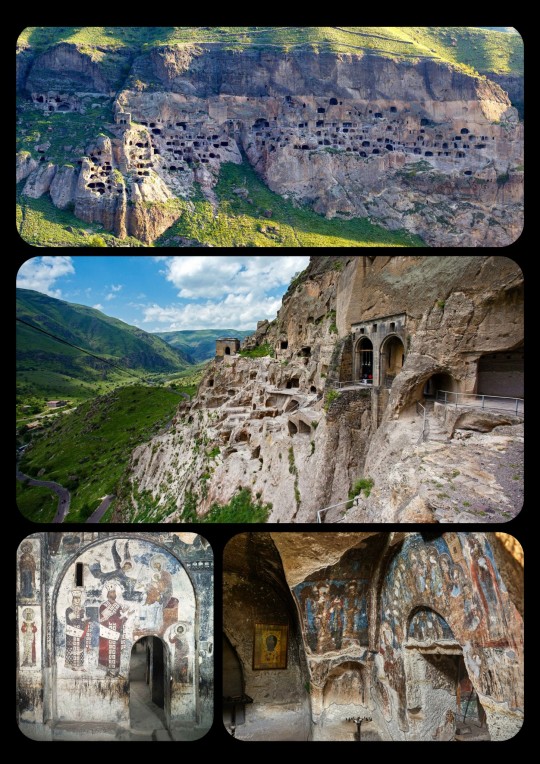
The monastic caves at Vardzia cover an area of about 500 meters. They are carved into the cliffs along the Erusheti mountains, which are located in Javakheti (a southern province near the borders between Georgia, Turkey, and Armenia).
Vardzia was originally meant to serve as a fortress, particularly in the event of a Mongol Invasion. It was protected by defensive walls, and the cave system itself was largely concealed within the mountain (though much of it is now exposed); it also contained a secret escape tunnel and several dead-end tunnels that were designed to delay/confuse enemy forces. The cave city could only be accessed through a series of hidden passageways that began near the banks of the Mtkvari River (which runs through the valley below the cave complex). Water was supplied through an irrigation system that was connected to the river, providing the inhabitants with both drinking water and agricultural irrigation, as the site contained its own terraced farmland.
The cave complex also functioned as a monastery, with a large collection of manuscripts and relics ultimately being housed at the site.

In its prime, the complex at Vardzia was inhabited by tens of thousands of residents.
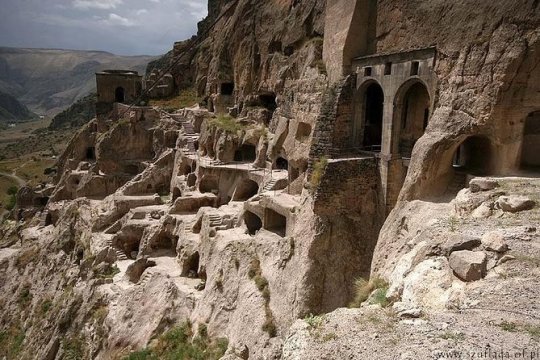
Unfortunately, most of the original structures at Vardzia were destroyed by an earthquake that struck the region in 1283 CE, just a century after its construction; the earthquake sheared away the outer layer of the cliffside, exposed many of the caves, and demolished almost two-thirds of the site. The surviving structures represent only a fraction of the cave complex that once existed at Vardzia, with only about 500 caves still intact.
When the earthquake tore through the site in 1283, much of the fortress and many of its defenses were also destroyed, and Vardzia lost most of its military/defensive purposes. Still, it continued to operate as a Georgian Orthodox monastery for several hundred years after that. It narrowly escaped the Mongol Invasions of the 1290s, but it was raided by the Persians during the 16th century; the invading forces burned many of the manuscripts, relics, and other items that were stored within the cave system, leaving permanent scorch marks along the walls of the inner chambers. The site was abandoned shortly thereafter.

Medieval portrait of Queen/King Tamar: this portrait is one of the Medieval frescoes that still decorate the inner chambers of Vardzia; Tamar was the first queen regnant to rule over Georgia, meaning that she possessed the same power/authority as a king and, as a result, some Medieval sources even refer to her as "King Tamar"
Vardzia is often associated with the reign of Queen Tamar the Great, who ruled over the Kingdom of Georgia from 1184 to 1213 CE, during a particularly successful period that is often known as the "Golden Age" of Georgian history. Queen Tamar was also recognized as the Georgian King, with Medieval sources often referring to her as King Tamar. She possessed the powers of a sovereign leader/queen regnant, and was the first female monarch to be given that title in Georgia.
The initial phases of construction at Vardzia began under the command of King George III, but most of the complex was later built at the behest of his daughter, Queen Tamar, who owned several dedicated rooms at Vardzia and frequently visited the cave city. Due to her relationship with the cave complex at Vardzia, Queen Tamar is sometimes also referred to as the "Mountain Queen."
Despite the damage that the site has sustained throughout its history, many of the caves, tunnels, frescoes, and other structures have survived. The site currently functions as a monastery once more, with Georgian monks living in various chambers throughout the cave system.
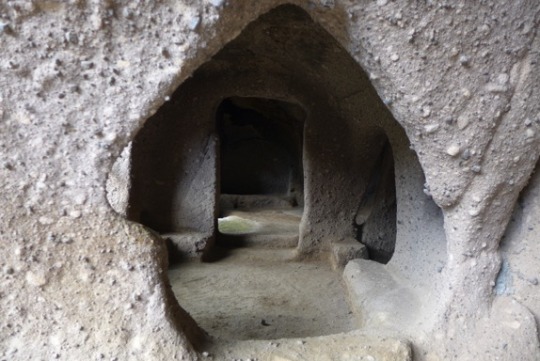
I visited Vardzia back in 2011, during my first trip to Georgia. It's an incredible site, though some of the tunnels are very narrow, very dark, and very steep, which can get a bit claustrophobic.
Sources & More Info:
Atlas Obscura: Vardzia Cave Monastery
CNN: Exploring Vardzia, Georgia's Mysterious Rock-Hewed Cave City
Lonely Planet: Vardzia
Globonaut: 5 Facts about Vardzia, Georgia's Hidden Cave City
Wander Lush: Vardzia Cave Monastery (complete visitor's guide)
#archaeology#anthropology#history#vardzia#georgia#caucasus#cave city#cave complex#monastic caves#artifact#architecture#military history#Tamar#religon#comparative religion#medieval fortress#middle ages#medieval church#medieval europe#travel#I think I'd need#all 25 wine cellars#just to get through a Mongol invasion
393 notes
·
View notes
Text

Janeway-Tuvok shopping montage
#'from a Vulcan master' don't those guys live in like cave temples??#Why are you shopping there?? Tuvok how much of your shopping is monastic thrift??#Tuvok: I have to do some shopping. / Janeway: I'll go with you. / Tuvok: Alright. May I suggest hiking boots?#st voyager#Kathryn Janeway#Tuvok#hehehe Earth doesn't have money but Vulcan sure does Starfleet Boy. Pay Up!!!!!#little tidbit crumbs of their friendship <3
11 notes
·
View notes
Text
Ninh Binh Vietnam

View On WordPress
#Bamboo Sampans#Bich Dong Pagoda#Bich Dong Pagoda Complex#Buddhist Monastics#Buddhist Temples Vietnam#Dancing Cave Ninh Binh#Dinh Dynasty#Guardians of the Buddha#Hanoi Management Board of Relics and Landscapes#Le Dynasty#Ly Dynasty#Lying Dragon Mountain#Mahayana School of Buddhism#Mua Cave (Hang Múa)#Mua Cave Complex#Ngo Dong River#Ninh Binh#Ninh Binh Province#Pure Land Buddhism#Red River Delta Vietnam#Tam Coc Central Bungalow Restaurant#Tam Coc River#Taoist and Confucian Traditions#Vajrayana#Vietnam National Day September 2#Vietnamese Buddhism#Vietnamese Buddhist Great Bell#Vietnamese Feng Shui#Vietnamese Feudal Dynasties#World Heritage Sites
1 note
·
View note
Text
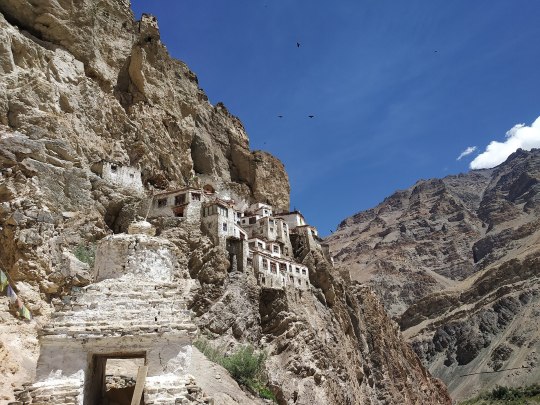
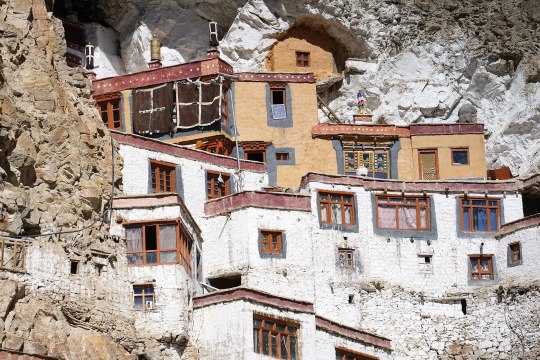

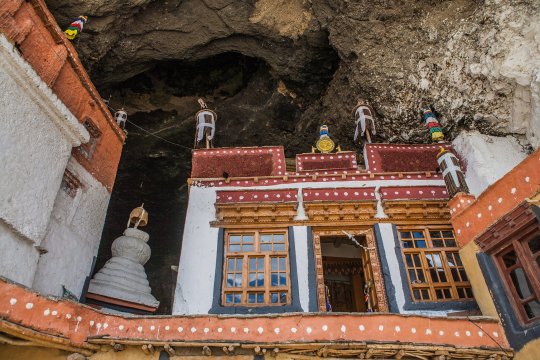
the phuktal gompa monastery in kashmir is built around a natural cave situated on a cliff of lugnak valley. the cave itself is thought to have served as a shelter for monks - in particular, the sixteen arhats - before the monastery was built around it ~2,500 years ago. today, it's home to 70 monks and a monastic school.
641 notes
·
View notes
Text
Aemond and Y/n's family (the daughters, daughters in law and grandaughters)
This takes place in the same universe at this post. I will do a post on the boys next.
Queen Daenerys Targaryen:
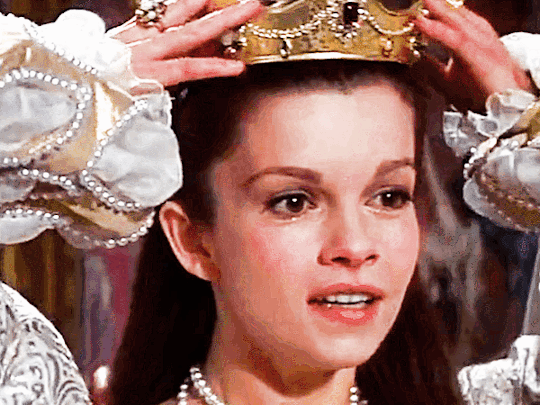
Daenerys Targaryen was the first born child of Y/n and Aemond, coming into the world eleven months after their marriage. Rumors about Daenerys's illegitimacy stemmed from the fact Daenerys did not inherit her fathers white hair and had a fear of dragons. She spent the first few years of her life at Blackhalt, a island just off the coast of the Westerlands. At six she was taken to the Red Keep to be presented to Queen Rhaenyra and was chosen as the wife for Rhaenyra's grandson Viserys. As a future Queen guardianship passed from her parents to future Queen Baela. Rhaenyra died a year later and a fortnight after King Jacaerys was crowned. At ten and five Daenerys was married, against the protests of her grandmother Alicent Hightower who felt she was too young. At twenty Daenerys would give birth to her first child Rhaenyra. Shortly after Daenerys took Syrax as her dragon. Four years later Daenerys gave birth to her second child Alicent. At twenty and five Daenerys became Queen. Her tenure as Queen Consort was only five when her husband passed away. Given the political situation the council feared a child on the throne. Seven months with child, Daenerys became Queen Regnant. Three months later Daenerys gave birth to her third and final child, Baela. Daenerys would rule for fifteen years before dying of an ulcer in her belly.
Vaella of Blackhalt:

Vaella Targaryen was the second born child of Y/n and Aemond. She was first married off to Orwen Hightower, however no children came from that marriage. At twenty she became a widow and returned to Blackhalt. There she remained as regent for her mother Y/n, who was very ill. When her sister became Queen Vaela was married to the Warden of the North. She gave birth to two children, Caergin Stark and Selene Stark. She had a happy marriage and during her husbands long military campaigns acted as the Norths ruling Lady. She died in her sixties from a fever.
Elara Targaryen:
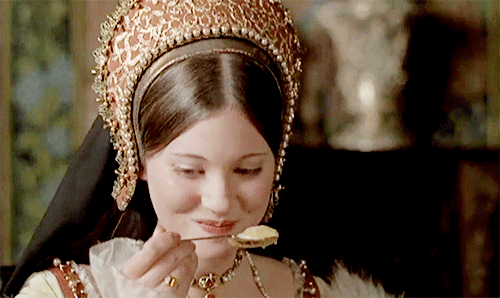
Like her eldest sister Elara was not born with Targaryen hair. Along with being born in Dorne, this once more brought rumors of Y/n's sexual conduct. In order to silence rumors Elara one day snuck into the dragon caves on Driftmark and took Cannibal as her dragon. Willful, many thought that what she lacked in Targaryen looks she made up for in spirit. She was closes to her brother Hardin who was only a year older. Elara would also make her own marriage by marrying Corin Velaryon, son of Lucerys Velaryon and Rhaena Targaryen. Elara was briefly imprisoner for this but quickly released. Elara accompanied her husband on his expeditions. Their marriage hit a hard place after a few years, however they worked to make it work and managed to end up very happy together. She had six children, Nymeria Velaryon, Naerya Velaryon, Helaena Velaryon, Saera Velaryon, Cora Velaryon and Rhaena Velaryon. At four and three Elara found herself suddenly pregnant. She gave birth to her final child Rhaena and passed away two weeks later from childbed fever.
Vissera Targaryen:

Vissera was the younger of the twins, with Elara being born two hours earlier. Unfortunately Vissera died at nine months from a fever. Her short life was spent at Blackhalt. She was buried in her families mausoleum in the Red Keep, much to her mother Y/n's displeasure.
Alice Targaryen:

Alice Targaryen was the final child of Y/n and Aemond and was the result of her parents grief. Her birth nearly killed Y/n and no more children were born to the couple. She was brought up in Blackhalt but only had her brother Viserys for company. At ten she moved to Oldtown as it was suggested she might become a Septa. This did not happen as Alice did not take to monastic life. Alicent resided in Oldtown until she was twenty and two. Despite her shyness Alice attracted unwanted attention for male suitors. Aegon Targaryen, son of Rhaenyra and Daemon, considered marrying her. Alice was quick to marry Roan Baratheon, heir to Storm's End. The next year Alice gave birth to Corbin Baratheon. She and her husband ruled Storm's End together. Alice died at forty and five from a lump in her breast.
Visenya Targaryen:

Visenya was the only daughter of Rhaenyra Targaryen and Daemon. She grew up in the Red Keep. At ten and five she met Elarion Targaryen, son of Aemond. She became a ward to Y/n Blackhalt and moved to the island. Visenya rode Meleys The Red Queen. At twenty and five Visenya eloped with Elarion and only came back when she fell with child. Her first child was Y/n Targaryen and a year later triplets Visenya, Aegon and Rhaenys were born. Visenya convinced her brother the King to give Elarion a dragon, Caraxes. Later on she would have three more children, Raellah, Veylara and Laenor. Visenya died at fourty along with her husband in battle.
Y/n of Essos:

Y/n Targaryen was born to Visenya Targaryen and Elarion Targaryen. She was named after her paternal grandmother Y/n. Most of her childhood was spent in Essos with her parents and siblings. At ten and six Y/n was spotted by Vaeserion Targaryen, son of Jacaerys and Baela. At ten and seven Y/n and Vaeserion married. Despite the age different the two had a happy marriage. Ten years later Y/n's husband passed leaving her a widow with two stepchildren and a two year old daughter. She spent the next two decade as a single woman, being called "Lady Royal". In her forties, Prince Rhaenar, heir to the throne, falls in love with him. Y/n becomes his mistress however Rhaenar wanted to marry her. Horrified, Y/n fleed to Storm's End which was under the rule of her cousin. Eventually Y/n and Rhaenar come to an understanding. Y/n retires to Essos and died at six and eight.
Visenya the witch of Blackhalt:

Visenya Targaryen was born the youngest of a set of twins. She was raised in Essos and at ten and six went to Westeros in order for her parents to secure a match. They had originally intended for her to marry Prince Edwin Targaryen however the match cancelled when her twin married Vaeserion. Visenya went back to Essos for a time and resided in Pentos. Visenya established her own court in Pentos and married a Pentoshi nobleman, Corbin of Pentos. Her firstborn child Astaria was shortly followed by a brother named Kiran. Visenya fought against slavery and was responsible for multiple slave riots. Visenya and Corbin would go on to have two more children, Alyara and Sephrone. She was associated at forty and one by slave masters.
#hotd x reader#hotd fanfic#aemond targaryen#aemond x you#aemond fic#aemond x fem reader#amond targaryen x y/n#hotd x y/n#house of the dragon#hotd angst#house of the dragon fanfiction#hotd imagine#aemond targaryen x reader#house of the dragon x reader
76 notes
·
View notes
Text
Some refer to themselves as "punk" because they don't like capitalism (yet still are attached to an intoxicating substance) & partake in loud expressions. I feel as if the real punks, the real rebells, wear monastic garments, live in caves, spend their waking hours in prayer, & otherwise fuck off from surface reality.
30 notes
·
View notes
Photo
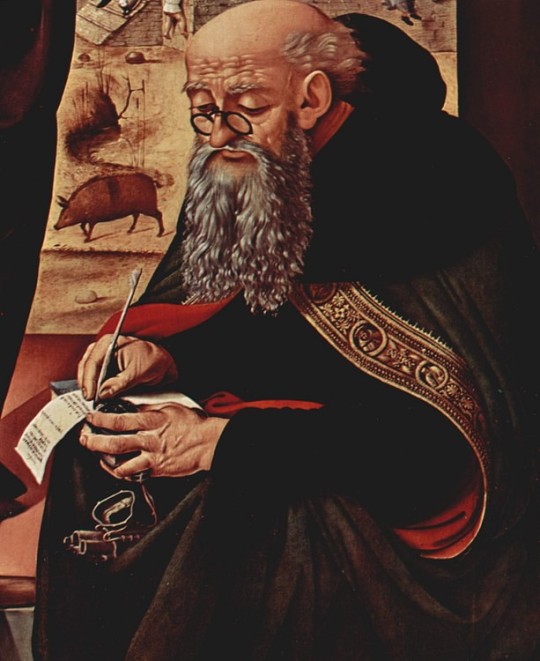
The Monastic Movement: Origins & Purposes
In 313 CE, Constantine the Great (272 – 337 CE) ended the sporadic-yet-terrifying Christian persecutions under the Roman Empire with his “Edict of Milan,” and brought the Christian church under imperial protection. Not surprisingly, public social activities and normative culture changed, quite dramatically and favorably, for the early Christians. Previously, early Christians faced dangers from outside of the faith and often had to “worship underground,” in order to avoid both physical dangers and social oppression from various Pagan and Jewish factions in the first three centuries of the faith. However, after Constantine's imperial endorsement and favoritism for Christian leaders and the laity, a new cultural permissiveness and secularism arose within the faith; and pious believers began to worry more about inner church immorality, abuse, and vice.
Beginning of the MOnastic Movement
Gonzalez writes, “The new privileges, prestige and power now granted to church leaders soon led to acts of arrogance and even to corruption” (143). As such, many in the primative Jesus movement sought a different, less secular, more purist environment in which to pursue their spirituality. MacCulloch states, “It was hardly surprising that the sudden sequence of great power and great disappointment for the imperial Church in the West inspired Western Christians to imitate the monastic life of the Eastern Church” (312). Thus began the official monastic movement in the West.
This Christian monastic lifestyle was simple at first, but, as is common to all societies, its routine became more and more convoluted and variegated with each passing century. One could find monks and nuns in caves, in the swamp, in a cemetery, even 12 metres (40 feet) up on stylite - all proclaiming God's calling and affirmation of their personal lifestyles. Eventually, specific rules and over-arching regulations were developed by the church institution to align all the numerous, specific groups into healthier, more consistant expressions of Christianity in the monastic movement.
The origin of the monastic movement begins in the 3rd and 4th centuries, CE, in the deserts surrounding Israel. As Nystrom notes,
Scholars have searched widely for the antecedents of Christian monasticism, hoping to find its pre-Christian roots in such possible points of origin as the Jewish Essene community at Qumran near the Dead Sea and among the recluses associated with the temples of the Egyptian god Sarapis. Thus far, no clear links have ben established to these or any other groups (74).
Continue reading...
21 notes
·
View notes
Text
what if bill nye took a monastic oath and moved to a cave in the mountains and became bill nye the silence guy
263 notes
·
View notes
Text
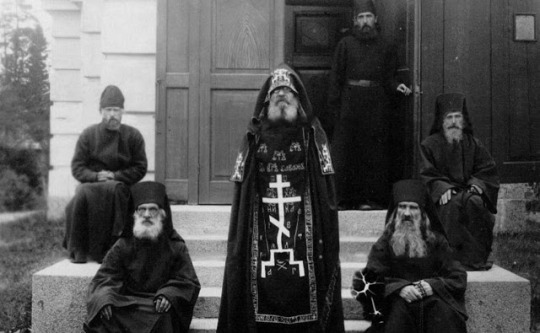
The monastic life first emerged as a definite institution in Egypt at the start of the fourth century, and from there it rapidly spread across Christendom. It is no coincidence that monasticism should have developed immediately after Constantine's conversion, at the very time when the persecutions ceased and Christianity became fashionable. The monks with their austerities were martyrs in an age when martyrdom of blood no longer existed; they formed the counterbalance to an established Christendom. Men in Byzantine society were in danger of forgetting that Byzantium was an icon and symbol, not the reality; they ran the risk of identifying the kingdom of God with an earthly kingdom. The monks by their withdrawal from society into the desert fulfilled a prophetic and eschatological ministry in the life of the Church. They reminded Christians that the kingdom of God is not of this world.
Monasticism has taken three chief forms, all of which had appeared in Egypt by the year 350, and all of which are still to be found in the Orthodox Church today. There are first the hermits, men leading the solitary life in huts or caves, and even in tombs, among the branches of trees, or on the tops of pillars. The great model of the eremitic life is the father of monasticism himself, Saint Antony of Egypt (251-356). Secondly there is the community life, where monks dwell together under a common rule and in a regularly constituted monastery. Here the great pioneer was Saint Pachomius of Egypt (286-346), author of a rule later used by Saint Benedict in the west. Basil the Great, whose ascetic writings have exercised a formative influence on eastern monasticism, was a strong advocate of the community life. Giving a social emphasis to monasticism, he urged that religious houses should care for the sick and poor, maintaining hospitals and orphanages, and working directly for the benefit of society at large. But in general eastern monasticism has been far less concerned than western with active work; in Orthodoxy a monk's primary task is the life of prayer, and it is through this that he serves others. It is not so much what a monk does that matters, as what he is. Finally there is a form of the monastic life intermediate between the first two, the semi-eremitic life, a 'middle way' where instead of a single highly organized community there is a loosely knit group of small settlements, each settlement containing perhaps between two and six brethren living together under the guidance of an elder. The great centres of the semi-eremitic life in Egypt were Nitria and Scetis, which by the end of the fourth century had produced many outstanding monks - Ammon the founder of Nitria, Macarius of Egypt and Macarius of Alexandria, Evagrius of Pontus, and Arsenius the Great.
-- Kallistos Ware, The Orthodox Church
40 notes
·
View notes
Text
@angellongtail SO UHHHH When you posted that cosplay for Red Son and Wukong as Cross and Ink, @eebydeeby3989 started off by
"Woah-ohhh-oh-oh
Story of MonkeyTale"
It uhhhh continued on-
Keep in mind this is somewhat long-
Edited by me and @/eebydeeby3989
"I fell from the light,
Talk or should I fight?
Demon Genocide,
This my MonkeyTale."
"I fell through a cave on Mount Huagou,
I faced an evil talking' shadow in a hut,
Explains the plot,
Wants me dead, wants me to rot."
"Monkey King saves me, takes me to his home,
And hooks me up with a brand new golden staff,
Leaves me alone,
But I escape and meet some bones."
"Should I run away?
Or should I use my staff?
I feeling evil, think I'll kill them all."
"I'm homicidal, and I've got a taste,
I want to wipe out the demon race,
(Woah-oh)
I've got no patience, I've got no resolve,
I will slaughter, screw the scriptures."
"I fell from the light,
Talk or should I fight?
Demon Genocide,
This my MonkeyTale."
"I'll slaughter Azure, I'll waste who I chose,
With all this mentorship there's no way I'll lose,
Now watch me move,
I won't stop, I'm feelin' rude."
"Jade Emperor shaking, he hears my approach,
I'll slaughter Red Son, squash his family like roach,
Mei's my coach,
All these demons I will poach."
"Screw running away,
I think I'll use my staff,
I'm feeling evil, think I'll kill them all."
"I'm homicidal, and I've got a taste,
I want to wipe out the demon race,
(Woah-oh)
I've got no patience, I've got no resolve,
I will slaughter, screw the scriptures."
"Golden staff, Crescent staff, use nine-pronged rake to take your life.
Monastic staff, fire-tipped spear, epic fights like front page news."
"Jade Emperor wants to collect demon souls,
Seven of them, is his ultimate goal,
Open the door, to humanity's realm,
Start a new war, humans overwhelm."
"I'm homicidal, and I've got a taste,
I want to wipe out the demon race,
(Woah-oh)
I've got no patience, I've got no resolve,
I will slaughter, screw the scriptures."
Check the original video!
Undertale the Musical
29 notes
·
View notes
Text
Fanfic: Bodhicitta
AO3 Mirror
Possibly the start of a short series. About the pilgrims, post-journey, and what led to their reincarnation in LMK.
CW for a bit of body horror at the end.
Tripitaka completes a pilgrimage, ponders his faith, and makes a vow.
bodhicitta: literally "Heart of Bodhi", the motivation and defining quality that makes a Bodhisattva in Mahayana Buddhism.
---
Thus the Bodhisattva Avalokitesvara,
Deep in meditation,
Saw the emptiness of all five skandas,
And sundered all bonds of suffering.
…
An old master living in a crow's nest taught him those lines. It shall protect you from harm, he said, sticking his neck out like an actual bird. Perhaps he used to be one. Perhaps he still was. Or maybe there was no difference.
("A single thought can make a Bodhisattva, or a demon," Guan Yin once told his disciple.)
It was hard not to feel a little cheated, though, when he tearfully muttered the sutra under his breath, and still fell off his horse, got dragged into a river, tied up next to a steaming pot after the monster broke his barrier with a single flick of its tail.
Oh, how he had recited the sutra faster and faster, squeezing his eyes shut, and still the demoness's nails pinched at his cheeks, drawing blood, cooing Aren't you a delicious little snack, in both senses of the word?
Why did it never work like those miraculous tales in the scriptures? Was he really that bad a Buddhist? Did such thoughts make him a bad Buddhist? Or were the tales just another product of the rampant mistranslation he was so tired of?
It won't matter, he told himself, trying to steady his resolve. Once they reach the Western Lands and receive the True Scriptures, he would finally be free of all doubts.
…
Here then,
Form is no other than emptiness,
Emptiness no other than form.
Form is only emptiness,
Emptiness only form.
…
"Master, if all things are emptiness, why do you care if I kill them or not?"
Patience, how to be gentle yet firm, a willingness to see beyond the words on paper and into ultimate reality. These are things he would come to learn. But he hadn't yet.
So instead, he began a lengthy lecture on just how much a grave misunderstanding of——no, insult to Buddhist doctrines that was.
Form is emptiness, because it never stops changing, like clouds in the sky. There is no permanence when nothing stays constant, going up and down in the wheel of samsara, lifted up or weighed down by their karma.
It is empty because it is a wheel, and doesn't go anywhere. Not because the chain of causes and consequences don't exist.
"But they had it coming!" The monkey pouted, like one of those spoiled aristocratic nuns he had encountered in the Golden Mountain Temple, who hated monastic life with a passion and only came here to escape a worse marriage. "Are their deaths not a natural consequence of, you know, robbing people?"
"Not by Great Tang laws, and certainly not by Buddhist laws." He rubbed his temple, feeling a familiar headache coming. "But that is not the point. What about your consequences, Wukong? How much negative karma are you accumulating by taking their lives? And how much will I receive by association, for failing to stop you?"
"Oh, so it's all about you?" Sun Wukong narrowed his eyes. They were glowing red, like embers in a hearth, which never failed to send a chill down his back.
"Well, even if I somehow end up in Hell again, it's not like the Ten Kings can do anything to me. And since you'd rather die than letting me stain your flawless karma, I'll leave you to it, then." With a single flip, he was standing on his somersault cloud. "Bye, baldy."
"Wait!" He shouted, but the monkey had already disappeared over the horizon.
…
All things are by nature void.
They are not born or destroyed,
Nor are they stained or pure,
Nor do they wax or wane.
…
But if nothing was stained or pure, why, then, would he be horrified at the deaths of six humans, but not an entire cave of demons?
They were but creatures of the Path of the Beast. Yet he was steadfast in his adherence to the monastic codes, which forbade him from consuming meat, for each meal costed the life of an animal. Was the life of a demon even less than that of livestocks, livestocks devoid of the spark of intellect?
Did their blood not stain his hands too?
Indeed, they were man-eating monsters. And so were regular wild beasts. So were two of his disciples, before they joined him on the pilgrimage.
If mercy could be extended to a monkey, a pig, a dragon, and a river monster that ate his nine past lives, why was it denied from the others?
Sometimes, on long, cold nights where nothing happened, and all they could see were the desert sands below and stars above, he wondered if Sun Wukong was right. If the fact that nothing could be truly created or destroyed, merely changed into another form, meant that death did not matter.
If compassion was but another form of attachment that led to suffering, and he would be better off severing it like the rest of his worldly bonds.
After all, he voiced no objections when the bandits who killed his father and destroyed his mother received their just deserts, nor did he do anything that might have stopped her from hanging herself in shame. Unseen laws were just as true as written laws and monastic laws, and beneath it all lay the karmic laws.
An eye for an eye. A good deed begets a good birth. Violence begets violence.
Were his convictions to do no harm just another lie, then? A delusion that he knew better, for he was the acolyte that actually bothered to learn Sanskrit, the good Buddhist, the master? Nothing but him putting his own discomfort and unseen scars above what was truly just and right and wise, and making his disciples suffer in his stead?
People clung to suffering not because they enjoyed pain, but because of the memory of happiness, and the promise of momentary release. It always felt good, until it didn't.
Like love and its inevitable loss.
He knew. Yet he could not stop hurting, could not let go of his doubts.
Maybe that made him an unworthy monk. Maybe the perils kept coming because he had not learned the lesson yet, and there would be a time when he finally stopped caring.
But whatever that time was, it wasn't now.
…
So, in emptiness, exists no form,
No feeling, thought, or choice,
Nor is there consciousness.
No eye, ear, nose, tongue, body, mind;
No colour, sound, smell, taste, touch,
Or what the mind takes hold of,
Nor even act of sensing.
…
Your senses fool you. Much like how the ghostly immortal, hijacking long-dead bodies, fooled him, and Yellow Robed Demon's illusion fooled the king of Baoxiang.
What makes one innocent? He thought, as he sat inside the cage, all four limbs chained to the floor. Or guilty, for that matter? What makes a man into a beast, a beast into human, a mortal into god, a god into monster?
What makes one deserving of forgiveness? He thought, as he looked into the dead woman's eyes, drowning out her shrieks with his chanting of Ksitigarbha's Sutra, suppressing her blue ghostfire with chains of golden light that wrapped tighter and tighter around the coffin. Or a chance, for that matter? Had she ever had a chance when it mattered?
When is an apology accepted, and not merely heard? He wondered, as he made his own to Sun Wukong, and the monkey didn't even spare a single glance at him. Just kept gazing eastward, a haunted look on his face.
…
No ignorance or end of it,
Nor all that comes of ignorance;
No withering, no death,
No end of them.
…
"Is that how I was like?" Sun Wukong mumbled, as he scrubbed at the end of his staff with a rag. If there was still blood left on the metal, it had already been cleaned off ages ago, yet he kept wiping and wiping, like he was trying to yank someone's vengeful spirit out of it. "Is that what I am?"
"No," he said, then immediately winced. Even with a barrier in between, getting hit in the back with a heavy iron stick was no joke.
"How would you know——" he turned back, and almost instantly squeezed out a smile. "Oh, greetings, master! Didn't see you there. Are you hungry again? Thirsty? Need your bandages changed? Sorry about that whole evil doppelganger business, by the way."
"There is no need to apologize. It is not your doing."
"But…" He looked away, then sighed, tossed the rag into the creek, and shrank his staff back to needle size, putting it into his ear once more. "Well, if you say so, then I ain't complaining, master."
"And you are not your Second Mind."
The monkey froze in place, and didn't speak for a long time. When he did, it was in a barely audible whisper. "Does it even matter, if I wanted to do the exact same thing?"
"You still didn't."
"I tried, though, master." He exposed his teeth in what looked like a grin, but, according to Bajie, was monkey language for I'm scared shitless or Bugger off before I eat your stupid face. "Don't you remember? Right after the fillet. And I was so close to trying again, every time you listened to Piggy and recited that spell for a reason that wasn't exposing shapeshifting demons."
It was strange, how reassuring it was to have your biggest fears confirmed. At the same time, it was also deeply upsetting, knowing that the fears weren't just about someone else, but also you yourself.
"Look, I…I know Macaque. Whatever he is, he sure ain't a literal piece of my mind. But that just makes it worse when he wanted to become me." Sun Wukong clenched his fists together. "He would've dragged me back by my tail, once upon a time, kept the worst of me in check. But I chased him away, and now he didn't know how to be anything else, so he just doubled down and became the worst bits of me anyways."
His eyes started glowing bright red again, as he bared his canines and let out a low growl.
"He killed my monkeys. Okay, Wujing did, but it wouldn't have happened if he didn't make them impersonate you guys. And he dared, DARED call me weak when I lunged at him screaming, after I saw what he did to their bodies! The coward who couldn't even be a villain on his own, without hiding behind someone else's shadow!"
The monkey breathed in deeply. "For that alone, I don't regret killing him. But when Di Ting——okay master, I guess you wouldn't know who that is, it happened after we punched each other into the ground, all the way to——"
"I do, in fact," he said. "Ksitigarbha's steed, the All-hearing Beast."
"Pretty much. But it's less hearing, and more…knowing." Sun Wukong paused. "The very earth speaks into its ears, and when Di Ting rises up from the ground, its eyes just see through you, all of you, and knows whether you are good or evil."
"I imagine that must be quite disconcerting."
"You know what's even more disconcerting? When the only answer it gave was 'Go speak to the Buddha.' I mean, it all worked out in the end, but I couldn't help but wonder if it was simply too polite to tell the truth. That we are but two different flavors of evil, capable of wreaking the same havoc, and," Sun Wukong shuddered, his fur standing on ends, "under a different circumstance, I, too, wouldn't see a problem with throwing my monkeys' lives away."
He knew what he should tell his disciple. No, you are not evil. You are not entirely good, but neither am I. Few people are made of one or the other, and it takes a special level of ignorance to claim so.
He also knew Sun Wukong would not believe it, not after hearing the furious speech he made a few days ago. Is your heart made of stone too, just like the rest of you? Are you capable of finding delight in anything, other than death and wanton destruction?
So instead, he lowered his head, knelt down in front of the monkey, and said, "You can do whatever you want to me."
"M-Master? What are you…" Immediately, the monkey moved forward, trying to lift him up. "Have you lost your mind?!"
"You heard me." He smiled. "I swear to the World-honored One, I will not recite the spell, or use my barrier. If you want to beat me up, or bash my head in, you are free to do so."
"No, no, hell no!" Sun Wukong took a step back. "Why do you think I would? No, why do you suddenly have a death wish?"
"I do not," he said. "I merely put my life into your hands, and choose to accept whatever consequences that ensue. Death is but one possible outcome." A pause. "Is it the outcome you want for me, though?"
"Again, hell no!" He shook his head. "I mean, I'm still mad at you, but this…wouldn't solve anything! And I'm not gonna protect you for so long, only to throw it all away for nothing. What are you getting at here, master?"
"Nothing. I'm just wondering, if you would not kill someone you have good reasons to hate," he looked into his disciple's eyes, "What makes you think you will ever knowingly send your subjects, your family, to their death?"
Sun Wukong's lips moved, but no sounds came out. Then tears started coming out those eyes——no longer glowing, but still red. Seconds later, the Great Sage Equal to Heaven was on the ground, clutching his robes, bawling like a little child.
"But I already did, master…not knowingly. But I still did, way back when."
…
Nor is there pain, or cause of pain,
Or cease in pain, or noble path
To lead from pain;
Not even wisdom to attain!
Attainment too is emptiness.
…
Reaching their destination did not free him from doubts, though it did lift a weight off his shoulders, knowing that he could begin the real work undisturbed.
Neither did staying in the presence of Buddhas and Arhats for the next few years, as he slowly but steadily gathered the reference materials he needed for a proper translation. Flipping through ancient, ink-covered leaves and scrolls alike, honing his Sanskrit while learning more local dialects than he ever needed to know.
He knew his disciples would fully redeem themselves upon their return to Chang'an, capital city of the Great Tang. That he would attain Buddhahood for bringing the scriptures back to China alone, and could have left the translation to other capable monks.
Alas, much like doubts, he wasn't ridded of his perfectionism either. So he politely asked to earn his Buddhahood instead, by finishing his translation and making sure people could actually understand the scriptures' wisdom, and was granted his wish.
Perhaps this decision was also born out of doubt. How ironic was it, that he wasn't sure if he wanted Buddhahood anymore, only after it was all but guaranteed?
How ironic was it, that he once was so foolish as to wish he could be rid of pain by severing every bond, by throwing his compassion away?
Enlightenment is not isolation. It is not a single snowflake, frozen in time, but a raindrop falling back into the ocean. You would never find true strength, if you dared not even let yourself be human and feel the slighest bit of weakness.
But what happened when the raindrop, so close to the ocean waves, gazed upon its fellow raindrops in the clouds and thought, For their sake, I want to stay? What would happen to it if it stayed?
Then it shall walk on the Path of the Bodhisattva, that was the obvious answer. However, despite his encounters with multiple Bodhisattvas during the journey, he had never really gotten a chance to know them personally, not to mention making inquiries about their nature.
Well, now would be his chance to find out.
…
"It begins with a Vow," the wily old scholar said, twisting a five-petaled azure flower between his fingers. "And the Vow stems from awareness. Comprehension. A glimpse into the void, a spark of Wisdom."
"Then, dedication, in both mind and body," the three-headed woman laughed, gripping a vajra club with one of her six arms and pointing it at the ground. "It takes great Will to descend into the land of the unliving, be a jewel of light amidst unfathomable darkness. Me? I prefer to Act in this world, help the needy before they reach that stage."
"At the root of it all is Mercy," the familiar woman in white dipped her willow branch into the vase, "the desire to see less suffering in the world, big or small. For you, too, have suffered, and learned that pain is no mark of weakness, nor is it unavoidable."
"I would not say there is anything at the root." The scholar corrected. "For that would suggest the superiority of one Vow over the other, one Path over another, when they are but streams flowing into a single river."
"Ever so precise with your words and diction, I see." his three-headed companion teased gently. "But indeed. To put it in the simplest term: practice what you preach."
"True. Compassion without wisdom is dangerous naivete, and sympathy without action is just empty words." The woman nodded. "But wisdom without compassion can quickly turn cold and detached, and actions and worship, done only for the benefits of oneself, is but another form of bribery."
"Mercy is not turning a blind eye to harm, but choosing the path of least harm——sometimes by offering a chance, other times, by recognizing they would not take it."
"But you already know that, do you not? Tripitaka, River-Float-Boy, Golden Cicada."
"Monk, orphan, prideful student."
"Sinner, redeemer, venerable master."
"So go," the three spoke together as one, "and walk upon your own path."
…
So know that the Bodhisattva
Holding to nothing whatever,
But dwelling in Prajna wisdom,
Is freed of delusive hindrance,
Rid of the fear bred by it,
And reaches clearest Nirvana!
…
Eighteen years.
Eighteen years had passed since his return. An entire tower was built in the west wing of his temple of residence, to store the sutras and holy artifacts he brought back.
He performed countless masses, to free the dead from their torments, one of which was on Flower Fruit Mountain. He sealed away a fire, destined to burn away worlds at the end of each kalpa, yet ignited too soon inside a child's body. He dealt with visits from nobles and high-ranking officials and rich laypeople all over Chang'an, until Wujing had to carry him back to his bedroom while Bajie shooed them out of the temple gate.
He took in more assistants and scribes. Taizong passed away and his third son inherited the throne. The officials made disdainful sneers at the mention of his new favorite concubine ("A nun! And one of the late emperor's consorts, too!"), then talked among themselves in a hushed and fearful voice, as she stepped over her rivals' bodies and became his empress.
His eyesight grew faint, his back ached on rainy nights, and sometimes he dropped a brush right after picking it up, because of the shakes in his hands.
Yet, after translating over six hundred scriptures, his work remained unfinished, and would likely never be finished.
A pity, but the completed translations would at least be in good hands.
He had recited his last prayers in front of the temple's monks——five days ago? Ten days ago? He could not remember. Everything blurred together, as if in a dream, and the only constant was the presence of his disciples.
His first, dearest disciples.
Wukong had stopped pacing, but was no less restless, if Bajie's muffled "Stop hitting me with your tail!" was any indication. Wujing's expression was one of grim acceptance, ever since he stopped eating and drinking and entered a deep mediation on his sickbed.
Ao Lie…they never told him what happened, but he had a feeling that the dragon prince wouldn't be coming back.
"Then stop standing next to my tail, Idiot."
"Excuse ya', there's only so much space in here!" A squeal. Sounded like the pig got pinched in the ear again. "Why are you so damn jittery today?"
"No idea. I just feel like…something's gonna happen."
And it did, the moment Sun Wukong finished speaking. The air grew cold and still. Before Bajie could yell "Don't jinx it, ape!" all the lamps went out in a gust of wind.
At first, there was only darkness. Then came a spark, a cicada's call, and with light, shadowy shapes.
Tendrils solidified into limbs and tails, bent at unnatural angles. Some silhouettes were fuzzy, clad in fur, some had horns and antlers, while the others were covered in bone spikes and scales. Many were missing chunks of their skulls or entire heads. Even more were charred to the bone, bits of cooked flesh sloughing off them as they lumbered forward.
Eyes with slit pupils, eyes that glowed, bug eyes, fish eyes, a pair of giant, lantern-like eyes, eyeballs hanging out of empty sockets——they all gazed into his, with unconcealed hatred and naked hunger. A few lunged at him, but soon staggered back with a pained screech, burnt by the golden light radiating from above.
Once, the mere sight would have sent him tumbling off his horse, trembling in fear, tears streaming down his face. He would not be standing tall, unfazed, listening to the vengeful ghosts of his would-be killers.
The Great Tang Monk, they cried out. Our doom. Our salvation.
A fellow poet, who became our guest. A group of four whispered from afar, branches and leaves shaking in their hair. The rudest of guests, and a deadly one too!
Did our mother wish for our deaths, Venerable Master? Two tiny shadows jumped up and down, behind a towering tiger demon. Was that what she wrote, in the letter she handed you?
Cheater! Devious bald donkey! A headless tiger, a disemboweled deer, and an oil-soaked goat skeleton tutted. Without your disciples, you'd never have won the contest.
Why is it a crime to eat the flesh of men, when they are never punished for consuming the flesh of our kind? A wrinkly fish demoness sighed. Such unfairness. Such hypocrisy.
Says you! I haven't eaten a single human, I'm just a palanquin carrier!
Do you remember us?
We, who are not worthy enough to count among your perils?
Do you even want to remember us?
Give it back, Great Tang Monk! The chorus of wails suddenly rose to a shrill crescendo. We want our lives back! Give our lives back, or grant us peace with yours!
He looked away from the consequences of his causes, and up into the light.
Six magnificent wings, six limbs, eyes like diamonds, a dot in the middle of the forehead. Cloaked in purple-gold kasaya, sitting in the lotus position. A most divine smile on an inhuman face.
A fleshless, miraculous body, a container of all the good deeds performed over his life and prior lives. A gateway to his Pure Land, an ocean of liquid gold.
One step, and he would be freed of birth and death, pain and doubt.
One step, and the spectres of murdered demons would never be able to reach him again, left behind to stew in their misery until they were dragged back to the Underworld in chains; the majority of them were far from innocent, after all.
One step between him and eternity.
And he needed only to reach out his hand and take it.
Idly, he wondered about what the others must've seen. What made them take that vital step, or stop at the last moment.
Then he shook his head and laughed. Those were their paths, were they not? Not his. Walk upon your own path.
He doubted even the three great Bodhisattvas could have predicted what he had in mind, though.
"I hereby forsake my Body of Benefit, to give all my accumulated virtues to the restless dead, so that they may be released from suffering, once and for all."
A crack formed in the golden figure's forehead, growing wider and wider, until it stretched from head to toe. Out crawled little cicadas, wings buzzing, making a beeline for the howling herd of shadows.
They flinched back at first, then, upon realizing what was happening, eagerly grabbed each and every insect and devoured them whole, dissolving into golden light with a joyous expression on their faces.
"I vow to descend into samsara, shedding my selves like a cicada's skin, my inherent Buddha-nature obscured, yet remain unfaltering in my pursuit. For there is no courage without vulnerability, no awareness without experience, no immortality without mortality, no transcendance without having been bound to the world."
As the shadows thinned, he could see his disciples again, their motion slowed to a crawl, the panic in their eyes slowly transforming into dreadful awareness at the words echoing through their mind. But there was no turning back. He had already committed to his Vow.
He only hoped that they could see the look on his face, or hear the warmth and wistfulness in his speech, as he continued speaking. This is not the end. I will be nowhere and everywhere. I will always be by your side, in one form or the other.
"For every life of mine, rich or poor, ignorant or wise, man or beast, ghost or god, I vow to undertake a journey, learn the meaning of compassion anew, and teach it to those denied of such chances: whether by birth, by luck, or by their own stubborn will."
"Only after I have walked all the paths that can be walked, learned compassion against all possible odds, taught all who were forsaken, shall I attain Nirvana."
The last cicada had been caught and swallowed. Fully split in the middle, the remnant of his miraculous body was little more than a shell now——a shell that was starting to shrivel up and burn away in bright golden flames.
"Thus saith Golden Cicada, known in this life as Chen Xuanzang. May the World-honored One be my witness, and grant me strength and wisdom on my journey."
The Vow was almost complete. Its binding words tugged at his soul, drawing him closer and closer, into the flames above. His form was fading, yet it did not hurt.
It felt like peace. Like a pair of glowing palms lifting up an insect, sending it back into the blue summer sky.
"Namo," he said, and let the light take him away.
#lmk fanfiction#lego monkie kid#journey to the west#xiyouji#jttw fanfic#tang sanzang#tripitaka#lmk tripitaka#lmk tang sanzang#sun wukong#lmk sun wukong
15 notes
·
View notes
Text
Saints&Reading: Tuesday , January 23, 2024
january 9_january 23
ST. THEOPHAN THE RECLUSE, BISHOP OF TAMBOV (1894)
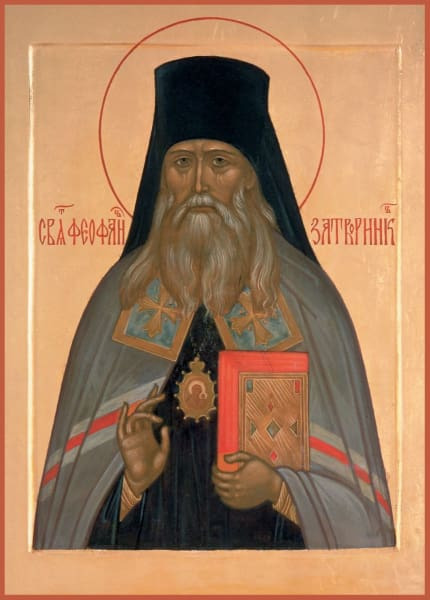
George Govorov, the future Saint Theophan, was born on January 10, 1815 in the village of Chernavsk in the Orlov province where his father was a priest.
At first, George attended a primary school at Liven, then a military school. From 1837-1841 he studied at the Kiev Theological Academy, and probably visited the Monastery of the Caves several times. In these surroundings, it was not surprising that he received the monastic tonsure while he was still a student. After graduation Hieromonk Theophan was appointed rector of Kiev’s church schools, and later became rector of the seminary in Novgorod. Before he retired from teaching, Father Theophan served as a professor and Assistant Inspector at the Petersburg Academy.
Saint Theophan was not completely happy with academic work, so he asked to be relieved of his duties. He was assigned to be a member of the Russian Mission in Jerusalem. After being raised to the rank of Archimandrite, he became Rector of Olnets Seminary. Soon he was assigned as the chief priest of the embassy church in Constantinople. Saint Theophan was eventually recalled to Russia to become rector of the Petersburg Academy, and supervisor of religious education in the capital’s secular schools.
On May 9, 1859 Saint Theophan was consecrated as Bishop of Tambov, where he established a diocesan school for girls. During his time in Tambov he came to love the secluded Vysha Monastery in his diocese. In 1863 he was transferred to Vladimir and remained there for three years. He also established a diocesan school for girls at Vladimir.
The holy bishop visited parishes throughout his diocese serving, preaching, restoring churches, and sharing the joys and sorrows of his flock. It was very difficult for Bishop Theophan to live in the world and become involved with vain worldly disputes. Many abused his trust, but he could not bring himself to chastise anyone. Instead, he left such unpleasant tasks to the Archpriest of his cathedral.
He was present at the uncovering of the relics of Saint Tikhon of in 1861, and this made a tremendous impression on him, for he had much in common with that saint. He had loved Saint Tikhon from early childhood, and always spoke about him with great enthusiasm. When Saint Tikhon was glorified as a saint on August 13, Bishop Theophan’s joy knew no bounds.
In 1866 his request to be relieved of his duties as Bishop of Vladimir was granted. He was appointed as Superior of the Vysha Monastery, but soon resigned from that position. He was permitted to live there and to celebrate services whenever he wished. He also received a pension of 1000 rubles.
As he prepared to leave his diocese, he wished to focus on his own salvation, and to concentrate on undisturbed communion with God. On July 24, 1866 he bade his diocese farewell, leaving the world for a life of reclusion, and to devote himself to writing spiritual books. Through these books, Saint Theophan has become the spiritual benefector of all Orthodox Christians. Although he sought the Kingdom of God and His righteousness (Mt. 6:33), a reputation as a writer of great significance for the whole world was also added to him.
Bishop Theophan wrote many books, but received no profits from their sale. He tried to keep them as inexpensive as possible, and they quickly sold out. He wrote about topics which others before him had not fully treated, such as how to live a Christian life, how to overcome sinful habits, and how to avoid despair. He tried to explain the steps of spiritual perfection systematically, as one who had himself gone through these various steps. Some of his books include The Spiritual Life and How to be Attuned to It, The Path to Salvation, and Letters on the Spiritual Life. He also translated the Philokalia in five volumes, and The Sermons of Saint Simeon the New Theologian.
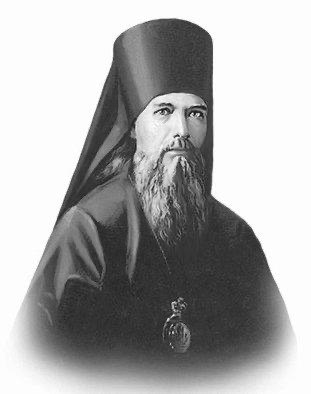
For the first six years in the monastery, Bishop Theophan attended all the services, including the early Liturgy. He stood still in church with his eyes closed so that he would not be distracted. He often celebrated Liturgy on Sundays and Feast Days.
Beginning in 1872, he cut off all relationships with people (except for his confessor) and no longer left his cell to attend church. He built a small chapel in his quarters and dedicated it to the Lord’s Baptism. For ten years he served there on Sundays and Feast Days. For the last eleven years of his life he served every day by himself. Sometimes he would sing, and sometimes he kept completely silent.
Whenever anyone visited him on business, Bishop Theophan would reply with as few words as possible, then immerse himself in prayer. If anyone sent him money, he would distribute it to the poor, keeping only a small portion to purchase books.
Whenever he was not occupied with writing or praying, the reclusive bishop worked at carpentry or painting icons. He received from twenty to forty letters each day, and he answered all of them. He was able to discern each writer’s spiritual condition, then give detailed answers to the questions of those who were struggling for the salvation of their souls.
His eyesight deteriorated in his latter years, but he did not curtail his work because of it. In the evening, his cell attendant would prepare everything for the bishop to serve Liturgy the next morning. After finishing the Liturgy, Bishop Theophan would knock on the wall to signal the cell attendant to serve him tea. On days when there was no fasting, he would eat lunch at 1:00 P.M. This consisted of one egg and a glass of milk. At four o’clock he would have some tea, and then no more food that day.
Bishop Theophan began to get weaker at the beginning of 1894. He was still writing on the afternoon of January 6, but when the cell attendant came to check on him at 4:30 he found that the bishop had departed to the Lord.
Saint Theophan’s body lay in the small church in his cell for three days, then three more days in the cathedral. There was no trace of corruption, however. He was laid to rest in the Kazan church of the Vysha Monastery.
Several of Saint Theophan’s books have been translated into English, and are reliable spiritual guides for Orthodox Christians of today. Saint Theophan’s gift was the ability to present the wisdom of the Fathers in terms which modern people can understand. Since he lived close to our own time, many readers find his books “more approachable” than the earlier patristic literature. He treats the life of the soul and the life of the body as a unified whole, not as two separate elements, and reveals to people the path of salvation.
SAINT THEOSEBIA, THE DEACONESS SISTER OF ST BASIL AND GREGORY OF NYSSA (385)
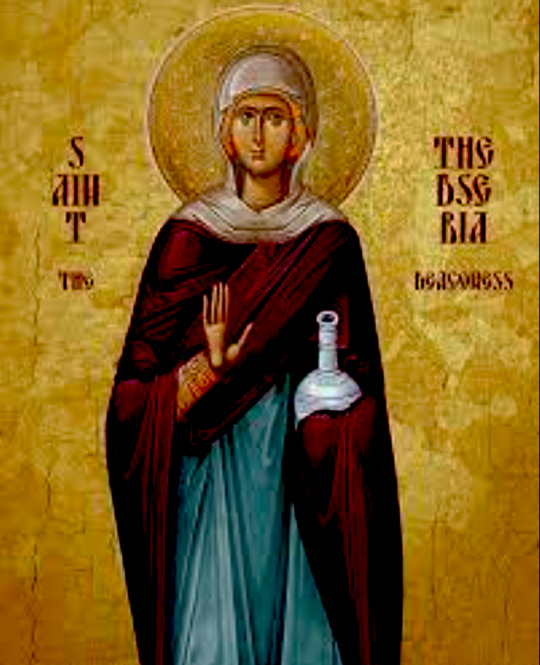
Saint Theosebia the Deaconess was the sister of Saints Basil the Great, Gregory, afterward Bishop of Nyssa, and Peter, Bishop of Sebaste. She was a virgin and served the Holy Church as a deaconess, caring for the sick, distributing food to vagrants, raising orphans and preparing women for holy Baptism.
When her brother, Saint Gregory of Nyssa, was in exile for three years, Saint Theosebia was with him and she shared in all the tribulations of a life of wandering. Saint Theosebia died in 385, and Saint Gregory the Theologian praised her in a eulogy.
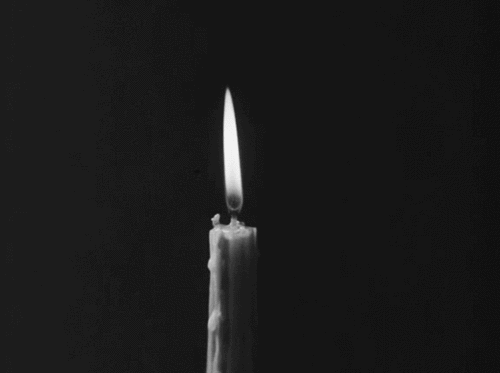
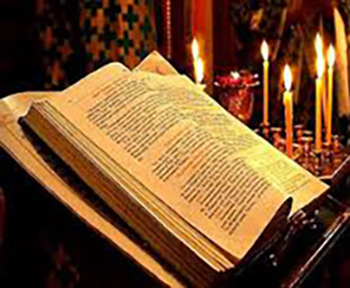
HEBREWS 9:8-10, 15-23
8 the Holy Spirit indicating this, that the way into the Holiest of All was not yet made manifest while the first tabernacle was still standing. 9 It was symbolic for the present time in which both gifts and sacrifices are offered which cannot make him who performed the service perfect in regard to the conscience- 10 concerned only with foods and drinks, various washings, and fleshly ordinances imposed until the time of reformation. 15 And for this reason He is the Mediator of the new covenant, by means of death, for the redemption of the transgressions under the first covenant, that those who are called may receive the promise of the eternal inheritance. 16 For where there is a testament, there must also of necessity be the death of the testator. 17 For a testament is in force after men are dead, since it has no power at all while the testator lives. 18 Therefore not even the first covenant was dedicated without blood. 19 For when Moses had spoken every precept to all the people according to the law, he took the blood of calves and goats, with water, scarlet wool, and hyssop, and sprinkled both the book itself and all the people, 20 saying, "This is the blood of the covenant which God has commanded you." 21 Then likewise he sprinkled with blood both the tabernacle and all the vessels of the ministry. 22 And according to the law almost all things are purified with blood, and without shedding of blood there is no remission. 23 Therefore it was necessary that the copies of the things in the heavens should be purified with these, but the heavenly things themselves with better sacrifices than these.
JOHN 10:9-16
9I am the door. If anyone enters by Me, he will be saved, and will go in and out and find pasture. 10 The thief does not come except to steal, and to kill, and to destroy. I have come that they may have life, and that they may have it more abundantly. 11 I am the good shepherd. The good shepherd gives His life for the sheep. 12 But a hireling, he who is not the shepherd, one who does not own the sheep, sees the wolf coming and leaves the sheep and flees; and the wolf catches the sheep and scatters them. 13 The hireling flees because he is a hireling and does not care about the sheep. 14 I am the good shepherd; and I know My sheep, and am known by My own. 15 As the Father knows Me, even so I know the Father; and I lay down My life for the sheep.
#orthodoxy#orthodoxchristianity#easternorthodoxchurch#originofchristianity#spirituality#holyscriptures#gospel#bible#saints#wisdom
10 notes
·
View notes
Text
Ashes to ashes. Memories, to dust. | Heartsink.
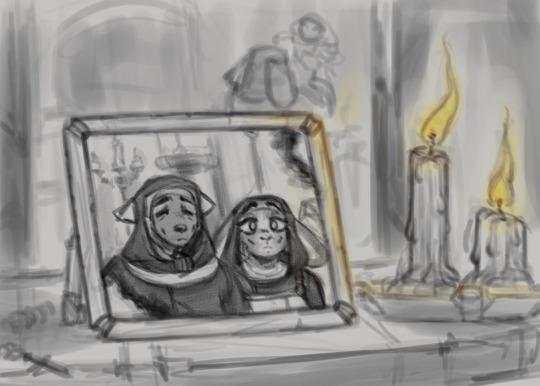
An old etching, charred but cherished.
Sanctified memories of easier days - of decidedly droll monastic toil and blessed children who deserved smothering love.
She would bear the worlds cruelty ten-fold to return to those days - but alas, days like those are gone.
Not forgotten.
--xXx--
"It is days like these, when my mind starts to wander. The quiet days, Agnes. Where no raiders threaten the poor souls of the fields, or where unholy abominations shake the land to it's core."
My mind yet wanders -- to days of quiet. Where most of my worries were whether or not I should hold myself more to the teachings of Her good book, or what should be made for dinner that night.
Did we get another shipment of carrots?
Ach, did the children have enough to eat that day? Especially with little Mary -- her sensitivity to the textures of what she eats vexes her so. She just cannot stand any fresh fruits we receive. She likes her things... Mushy. Makes quite a mess!
A donation that day? Oh! A noble from the Upper Blocks was here to drop off some sweets. I know that wonderful smell... Yes! Apple and Blackberry Jam Twists! The kids will love these so. I just hope She, Above doesn't mind if I sneak one or two...
More prayers today. Mother Superior believes we need as many blessings as we can get these days. I always pray for the children.
Andrea's eyesight grows poorer every day, and I fear we not have enough to get her a pair of glasses. And little Marcel, his education grows by leaps and bounds -- but we must find a scholar willing to take on an apprentice! A sharp mind like his needs a whetstone, after all.
The twins got into another fight today. Hellions, the both of them. I understand they both cannot ride the swing at once, but to have such a scuffle over it? I will talk to both of them tomorrow, when they've both cooled off. I might even surprise them with a slice or two of pie. But...
Something is... Wrong. I don't know, but even the children are starting to notice it. The well-water is starting to turn. I haven't heard the songs of the birds in the mornings. The Watch is telling citizens to avoid blocks in-case of... disappearances. Vivienne is even telling the kids to stay off the streets. Troublemaker she is, she's even cutting her courier services short to help around The Orphanage.
Even my dreams are starting to turn.
I hear it. Below us. An abhorrent thudding that keeps beat with itself. A siren call of evil. The pumping of blood to something that should not live. A cacophony of vile beasts, assembling themselves to make us all suffer. To make us all bleed.
And a vision, clear as day. The city, cracked open, rivers of blood pouring into its caved in ribs.
Screaming, endless screaming. A choir of suffering that never seems to quiet.
A sinkhole in our center, a pit of absolute hell spewing ash into the air. The sun, blotted out, day choked dark to signal the end.
An earthshattering beating, every pulse sinking more and more of the city into it's cavernous maw. And deep below... In the true center beats...
A Heart.
Goddess above, what is going o--
A cry. Looks like little Lucy is awake again. In the here and now.
She's growing up awful fast. I keep her in my room, just in case. I glance at the photo on my dresser. A window into a past I still yearn for. But, alas.
I cannot have it. But Goddess above, I will fight for something like it. For the children.
44 notes
·
View notes
Note
Modern au with the mud fic characters for the au asks???
oh gosh that's a hard one because modern aus (or aus that take characters out of their source material) dont really do anything for me. but i shall try!
i'd really love to keep the jedi a monastic order but i don't want to choose an irl religion to liken to whatever the force has going on so now they'd be a really old and established international NPO/charity
the main Jedi Archives would be in Alexandria (for obvious reasons :P), and maybe the whole main Jedi 'Temple' would be there and was founded during the unification of Lower and Upper Egypt
Mandalore would be - and just hear me out here - Switzerland (i can go on several rants about how Mandalore is just space switzerland ) the ori'ramikade are an illegal mercenary group led by Jaster, who comes from a military family but was disillusioned with how the military in switzerland is handled and thought he could do better. still illegal tho.
the planet Kalevala is the Canton of Zürich. iykyk
Making Dooku a british royal is just a low hanging fruit at this point. all the conspiracies about House Windsor apply.
I'm making Adaan Kryze (renamed him for less psych damage to all my jewish friends) the Bundesrat in charge of the BaG (Bundesamt für Gesundheit / Federal Departement of Health) simply because i can and it's an in joke with myself
Jocasta is half japanese and half french
Sifo-Dyas is iñupiaq (someone from the miners proposed this idea and i sure liked it, can't remember who tho sorry i am horrible at remembering names)
they would still meet in a cave during a rainstorm
the whole thing would be mud fic but the politics cranked up to a THOUSAND because hoo boy, Jaster is going against so many international and national laws and conventions
yes, Yan Dooku eventually becomes King of England TT i'm taking as much psych damage writing this as you do reading it
oh yeah, and because it's another low hanging fruit:
vizsla's kyr'tsad are a nazi paramilitary operation
idk this took me way too long to cobble together because, again, i dont really see much sense in taking characters out of their source material. aus and crossovers get filtered in my ao3 immediately :P
that's why i feel like realistically a mud fic modern au would just result in WWIII because of how real world politics work. make of that what you want.
#this kinda just turned into 'boli's space switzerland!mandalore headcanons 101'#but i had to go from somewhere didnt i TT#i am incapable of just having characters exist in a vacuum i need to establish the worldbuilding first#so worldbuilding you get#me writing#random boli thoughts
5 notes
·
View notes
Text
Earlier today I had my monthly "The Sanctuary Sacred Circle" with my teacher Rebecca Campbell.
Today we did a meditation and ceremony about the closing of the year and honoring endings.
At the end of the meditation she asked several questions that I responded to by intuitively writing - not thinking about what I was writing, just writing.
This is what I wrote. Sometimes I remembered to copy her writing prompt. Sometimes not.
(Off-topic) Reminder - Winter solstice is December 21st
Our light is our first soul, our ancient self.
Love.
Love for all.
Love for everyone.
Love.
A year of change.
A new year, a new me.
Finding peace in the chaos.
Going center again.
Block the noise. Go within.
As the world becomes more chaotic, I become more still. More centered. More quiet.
I am the wise monk in his solitary cave.
There is wisdom in peace and serenity.
Wisdom in the center of the hurricane.
Wisdom in silence.
Wisdom in solitude.
Getting caught-up in the chaos is a waste of energy.
Spend your energy on Love.
Love is all that matters.
Nothing else.
Not fear. Not anger.
Love. Always, love.
What are you most grateful for this year?
My job and having the financial security to live a silent monastic life. To have my needs met and cared for.
A life of change.
The only constant is change.
We live in a cyclical world.
What were the blessings of the year?
Can I see the car accident as a blessing?
Can I see the break-up with Michael as a blessing?
Can I see the Mushroom Incident as a blessing?
They all brought me to where I am now.
Not broken. Grateful. Quiet. Strong. Solitude. At peace. Serenity.
What didn't go to plan this year?
I had no plan. Life will continue and do what it will. My job is to live it. To let it change me. Like a stone smoothed by the waters. I am becoming closer to Source. Closer to the Truth. Knowledge comes from lived experiences.
What happened instead?
My rough edges have been refined. I am a polished rock.
(Side note: Interesting I compared myself to a rock/stone. I blame the car accident and breaking up with Michael on the magic inherent in rocks and stones. That month I was working on rock/stone magic and we were driving to a rock/stone labyrinth when the car accident happened. Rocks/stones have animosity with water. I am a water sign. I commune with water. I am a water baby. I am made of water. My life spiraled because rock/stone magic is STRONG. But water is stronger. We can erode rocks/stones.)
What do you want to give yourself in the last weeks of 2023?
A hug.
To know I am loved and appreciated.
I am embraced and held by the world.
I am surrounded by Source.
The blue light glows within.
The warm waters flow.
I am one with the universe.
Is there anything you need to do or express in order to feel complete?
Is there another book in me? Correcting missed opportunities?
I feel complete.
I feel at peace.
I feel whole. One.
Kundalini awakenings have a 7 year cycle.
Mine was May 21, 2014.
What cycle am I in now?
5 notes
·
View notes
Photo
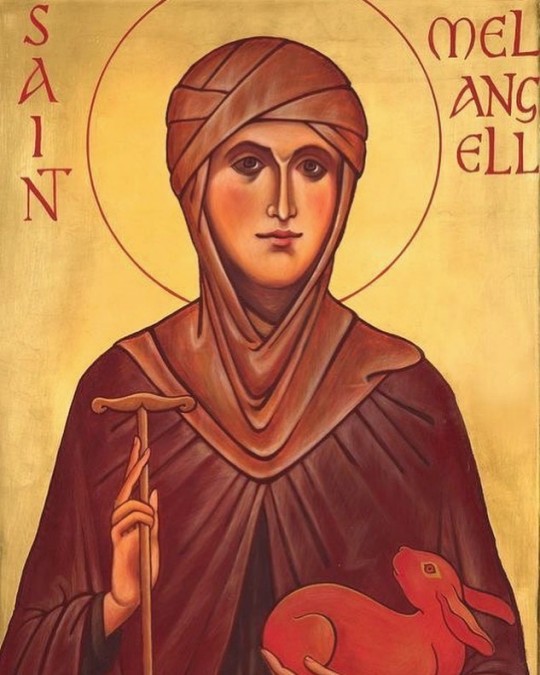
Today we also celebrate the Righteous Melangell the Abbess of Wales. Saint Melangell was born of royal Welsh lineage and was thus expected to marry. Yearning for the life of prayer and solitude, Melangell renounced her royal status and fled for Ireland in around 590AD and settled in an isolated area where she would sleep on bare rock with a cave as her cell. She remained hidden her for almost fifteen years. One day, as the Welsh Prince Brochfael Ysgithrog was hunting in the area, his hounds found a hare which they pursued with the intent of killing it. The hare ran through a bush and the Prince followed it. He then unexpectedly found the Hermitess Melangell in such deep prayer that she remained undistracted by the commotion happening around her. The breathless hare had found refuge in the folds of Melangell’s garment. When the Prince’s ordered his hounds to snatch the hare, the hounds dared not approach the Saint. Now aware of what was happening, Melangell calmly, but boldly, drove the dogs back. The Prince had never seen such a thing before and was in utter amazement. He cautiously approached the hermitess and asked to hear her life story. Deeply moved by the Saint, the Prince marvelled at Melangell’s beauty, purity, and love for God. Nevertheless, he suggested that she leave her solitude and marry him. She gently but adamantly refused, and the Prince was so impressed with her sanctity and determination that he donated a parcel of land on which she would found her monastery. This monastery became a refuge not only for animals, but for all people who came to Melangell to be comforted by her words. Saint Melangell lived for almost forty years in her monastery guiding and counselling all who came to her. During her life, no animal was ever killed on her land, and for centuries after, those who live in the area do not dare to hurt any hares as they are regarded to be protected by the Saint. Saint Melangell is considered the Patron Saint of hares and other small animals and performs miralces for those who come to her with faith. May she intercede for us always + #saint #melangell #ireland #wales #hermitess #monastic #anchoress #God #love #prayer #orthodox (at Newcastle, Powys, United Kingdom) https://www.instagram.com/p/CoDexdth4en/?igshid=NGJjMDIxMWI=
47 notes
·
View notes